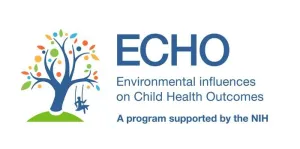(Press-News.org) A study led by researchers from the University of Arizona Cancer Center at UArizona Health Sciences identified a biological mechanism that could lead to more effective treatments for breast cancer that has metastasized to the brain.
By studying the metabolic differences between primary breast cancer cells and those that metastasize to the brain, they determined that autophagy was significantly upregulated in brain metastases. Autophagy is a cellular recycling process that cancer cells can use to stay alive when faced with stressful conditions such as those triggered by anticancer drugs.
“The prognosis for individuals with brain metastases from breast cancer is extremely unfavorable, and the management of breast cancer metastases in the brain remains a formidable challenge,” said senior author Jennifer Carew, PhD. “We were able to disrupt breast cancer cells’ ability to form brain metastases by impairing the autophagy pathway.”
In the study published in Clinical and Translational Medicine, the researchers first showed that targeting the key autophagy regulating gene ATG7 significantly reduced the ability of breast cancer cells to form brain metastases in mouse models.
With the goal of developing a strategy to bring this discovery to patients, the research team investigated whether hydroxychloroquine, a Food and Drug Administration-approved drug, could potentially be used to treat breast cancer brain metastases. Hydroxychloroquine inhibits autophagy at a later point in the pathway and, importantly, readily crosses the blood-brain barrier.
“Most drugs do not efficiently cross the blood-brain barrier, and that is one of the key reasons why brain metastases are so difficult to treat,” said Carew, who is a professor of medicine at the UArizona College of Medicine – Tucson and a member of the UArizona Cancer Center Clinical and Translational Oncology Program.
The research team combined hydroxychloroquine with lapatinib, which is FDA-approved to treat breast cancer. They showed that this drug combination successfully reduced the number and size of breast cancer brain metastases in mouse models.
Hydroxychloroquine has been combined with a number of other anticancer agents in early phase clinical trials, but this is the first time researchers have studied its effectiveness when combined with lapatinib for breast cancer therapy.
Carew said the team was amazed by how significantly they were able to diminish the ability of breast cancer cells to form brain metastases by targeting a single pathway.
“Cancer cells, unfortunately, have evolved so many ways that make it difficult for us to stop their growth or kill them,” Carew said. “It is always somewhat surprising when you see how changing only one thing can have an impact.”
“Our group and others have shown that activation of autophagy makes it harder for many different types of cancer therapies to kill cancer cells and this promotes drug resistance,” said first author Steffan Nawrocki, PhD, co-director of the Cancer Center Clinical and Translational Oncology Program and professor in the UArizona College of Medicine – Tucson. “Because hydroxychloroquine and lapatinib are already FDA approved, we can advance this drug combination quickly into a clinical trial for patients with breast cancer brain metastases.”
Brain metastases are the most prevalent adult central nervous system tumors, with 20% to 30% of cases resulting from breast cancer patients, particularly those with triple negative and HER2 amplified disease. Managing breast cancer metastases in the brain is challenging, with only 20% of patients with breast cancer brain metastases surviving beyond five years.
Other co-authors include Wei Wang, PhD, professor in the R. Ken Coit College of Pharmacy; former doctoral student Trace M. Jones, PhD; Claudia M. Espitia, assistant staff scientist in the College of Medicine – Tucson; postdoctoral fellow Maria Janina Carrera Espinoza, PhD; and doctoral students Madison E. Gamble, Sruthi Sureshkumar and Mengyang Chang.
This research was supported by the National Cancer Institute, a division of the National Institutes of Health, under Award Nos. T32CA009213, R21CA184649, R01CA190789, R01CA268383 and P30CA023074.
END
Study identifies potential pathway to reducing breast cancer brain metastases
A study led by researchers from the University of Arizona Cancer Center at UArizona Health Sciences identified a biological mechanism that could lead to more effective treatments for breast cancer that has metastasized to the brain.
2024-06-07
ELSE PRESS RELEASES FROM THIS DATE:
How does oxygen depletion disrupt memory formation in the brain?
2024-06-07
When we learn something new, our brain cells (neurons) communicate with each other through electrical and chemical signals. If the same group of neurons communicate together often, the connections between them get stronger. This process helps our brains learn and remember things and is known as long-term potentiation or LTP.
Another type of LTP occurs when the brain is deprived of oxygen temporarily – anoxia-induced long-term potentiationor aLTP. aLTP blocks the former process, thereby impairing learning and ...
Study investigates relationship between phthalate exposure and high blood pressure, related complications during pregnancy
2024-06-07
Higher exposure to certain chemicals called phthalates is linked to an increased risk of pregnancy complications, including preeclampsia and eclampsia (PE/E) and other hypertensive or high blood pressure disorders, according to a study funded by the NIH Environmental influences on Child Health Outcomes program. Here are the key findings:
Doubling the levels of a specific molecule linked to exposure to phthalates found in PVC plastics and insect repellents—mono (3-carboxypropyl) phthalate (MCPP)—increased ...
YALE NEWS: Study finds no association between COVID-19 vaccines and stillbirths
2024-06-07
New Haven, Conn. — In a new study funded by the U.S. Centers for Disease Control and Prevention, researchers from Yale and 11 other institutions found “no association between COVID-19 vaccination and stillbirth.”
In a case-control study led by Yale School of Medicine’s Dr. Anna Denoble, researchers compared 276 stillbirths with 822 live births during a one-year period from February 2021 to February 2022. Their results, published June 6 in the journal Obstetrics & Gynecology, found no linkage between pregnant individuals ...
University of South Florida using AI to help combat malaria in Africa
2024-06-06
Media Contact:
John Dudley
(814) 490-3290 (cell)
jjdudley@usf.edu
TAMPA, Fla. (June 6, 2024) – University of South Florida researchers are using artificial intelligence to revolutionize mosquito surveillance to help combat malaria in Africa. Ryan Carney, professor of integrative biology, and Sriram Chellappan, professor in the department of computer science and engineering, will collaborate with an interdisciplinary team of researchers to advance malaria research and explore innovative solutions ...
Webb finds plethora of carbon molecules around young star
2024-06-06
An international team of astronomers has used NASA’s James Webb Space Telescope to study the disk of gas and dust around a young, very low-mass star. The results reveal the largest number of carbon-containing molecules seen to date in such a disk. These findings have implications for the potential composition of any planets that might form around this star.
Rocky planets are more likely than gas giants to form around low-mass stars, making them the most common planets around the most common stars in our galaxy. Little is known about the chemistry of such worlds, which may be similar to or very different from Earth. By studying the disks from which such planets form, astronomers hope ...
Study finds home health aides struggle with mental health
2024-06-06
Study Finds Home Health Aides Struggle with Mental Health
Home health aides (HHAs) are vulnerable to stress, isolation and depressive symptoms, which impact their own health as well as their patients’ desire to age in place, according to Weill Cornell Medicine researchers. HHAs are a rapidly growing workforce trained and certified to provide personal and medical care, as well as emotional support, in the home.
“As a doctor, I’ve learned that home health aides are a critical part of patients’ well-being,” said senior author Dr. Madeline Sterling, ...
Researchers develop microneedle patch to reverse hair loss caused by autoimmune disease
2024-06-06
Alopecia areata (AA) is an autoimmune disease characterized by hair loss, which occurs when T cells of the immune system mistakenly attack hair follicles. To restore control over hyperactive immune cells, investigators from Brigham and Women’s Hospital, a founding member of the Mass General Brigham healthcare system, and MIT developed a cutting-edge approach to deliver T cell regulators directly to sites of hair loss and halt autoimmune activity. Findings, published in Advanced Materials, demonstrated marked and lasting increases in hair regrowth in models of the disease.
Our immune system evolved to safeguard against the overactivation that occurs when it mistakenly attacks ...
Lakmini Kidder named Senior Vice President of Finance and Chief Revenue Officer
2024-06-06
Lakmini Kidder, MBA, has been appointed to the newly expanded role of Senior Vice President, Finance, and Chief Revenue Officer (CRO) for Vanderbilt University Medical Center (VUMC). Kidder will begin her role on July 22. She joins VUMC from Johns Hopkins Health System in Baltimore, where she served as Vice President of Enterprise Revenue Cycle Management.
In her new capacity, Kidder will assume responsibility for overseeing all aspects of VUMC’s integrated revenue cycle, encompassing hospitals, clinics, the Vanderbilt Medical Group and Vanderbilt Integrated Providers. Additionally, she will oversee revenue management and ...
Discovery highlights ‘critical oversight’ in perceived security of wireless networks
2024-06-06
A research team led by Rice University’s Edward Knightly has uncovered an eavesdropping security vulnerability in high-frequency and high-speed wireless backhaul links, widely employed in critical applications such as 5G wireless cell phone signals and low-latency financial trading on Wall Street.
Contrary to the common belief that these links are inherently secure due to their elevated positioning and highly directive millimeter-wave and sub-terahertz “pencil-beams,” the team exposed a novel method of interception using a ...
Diagnosing damaged infrastructure from space
2024-06-06
As infrastructure ages, it becomes more susceptible to failure, which can cause safety and mobility concerns for drivers and pedestrians, and economic woes for taxpayers. A recent study published in “Transportation Research Record” shows that high-resolution synthetic aperture radar (SAR) satellite data can detect infrastructure issues early on, which can help prevent further damage to roads in the same way that annual checkups can help prevent more complex health issues in humans.
Led by Dr. Anand Puppala and Ph.D. candidate Amit Gajurel, researchers at Texas A&M University are working on a new method of infrastructure monitoring using Synthetic ...
LAST 30 PRESS RELEASES:
The long standing commercialization challenge of lithium batteries, often called the dream battery, has been solved.
New method to remove toxic PFAS chemicals from water
The nanozymes hypothesis of the origin of life (on Earth) proposed
Microalgae-derived biochar enables fast, low-cost detection of hydrogen peroxide
Researchers highlight promise of biochar composites for sustainable 3D printing
Machine learning helps design low-cost biochar to fight phosphorus pollution in lakes
Urine tests confirm alcohol consumption in wild African chimpanzees
Barshop Institute to receive up to $38 million from ARPA-H, anchoring UT San Antonio as a national leader in aging and healthy longevity science
Anion-cation synergistic additives solve the "performance triangle" problem in zinc-iodine batteries
Ancient diets reveal surprising survival strategies in prehistoric Poland
Pre-pregnancy parental overweight/obesity linked to next generation’s heightened fatty liver disease risk
Obstructive sleep apnoea may cost UK + US economies billions in lost productivity
Guidelines set new playbook for pediatric clinical trial reporting
Adolescent cannabis use may follow the same pattern as alcohol use
Lifespan-extending treatments increase variation in age at time of death
From ancient myths to ‘Indo-manga’: Artists in the Global South are reframing the comic
Putting some ‘muscle’ into material design
House fires release harmful compounds into the air
Novel structural insights into Phytophthora effectors challenge long-held assumptions in plant pathology
Q&A: Researchers discuss potential solutions for the feedback loop affecting scientific publishing
A new ecological model highlights how fluctuating environments push microbes to work together
Chapman University researcher warns of structural risks at Grand Renaissance Dam putting property and lives in danger
Courtship is complicated, even in fruit flies
Columbia announces ARPA-H contract to advance science of healthy aging
New NYUAD study reveals hidden stress facing coral reef fish in the Arabian Gulf
36 months later: Distance learning in the wake of COVID-19
Blaming beavers for flood damage is bad policy and bad science, Concordia research shows
The new ‘forever’ contaminant? SFU study raises alarm on marine fiberglass pollution
Shorter early-life telomere length as a predictor of survival
Why do female caribou have antlers?
[Press-News.org] Study identifies potential pathway to reducing breast cancer brain metastasesA study led by researchers from the University of Arizona Cancer Center at UArizona Health Sciences identified a biological mechanism that could lead to more effective treatments for breast cancer that has metastasized to the brain.








